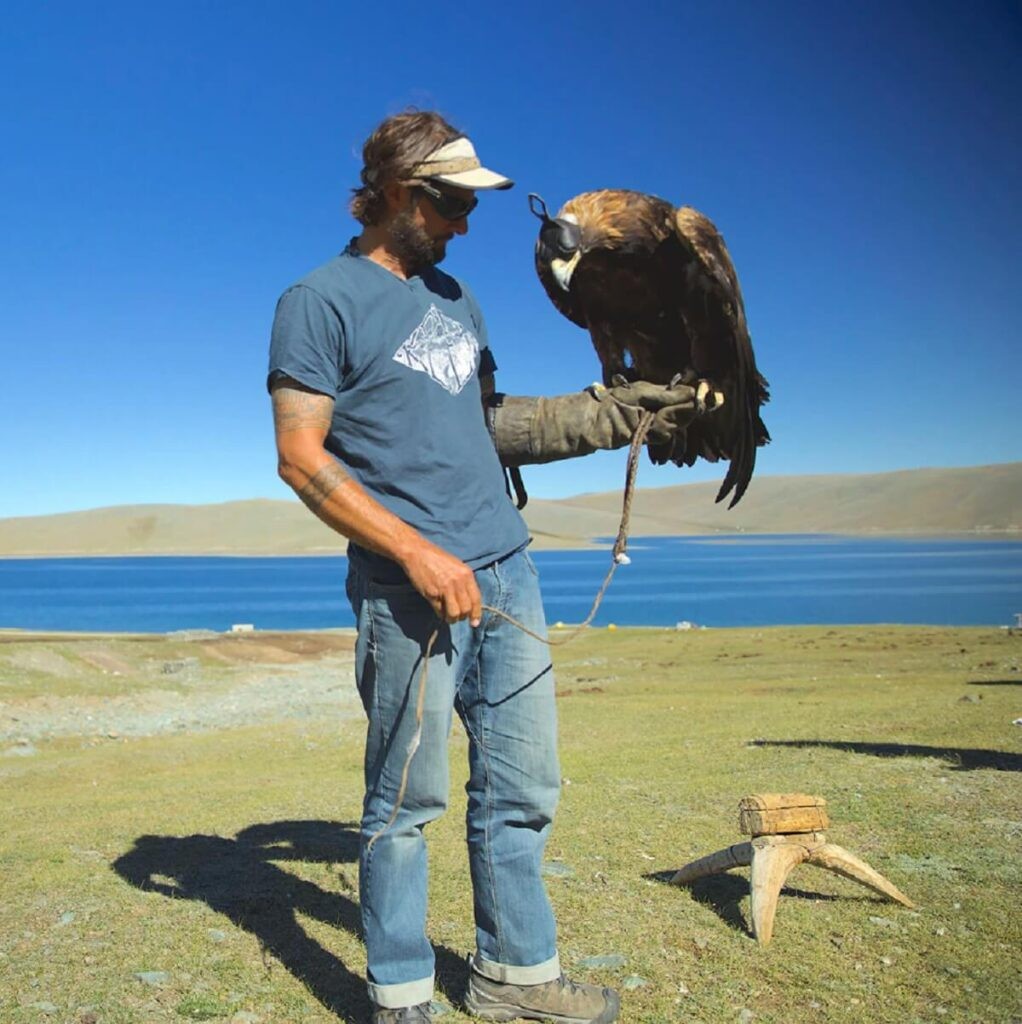Eagles, with their breathtaking wingspan and piercing gaze, have long been symbols of power and freedom. Their majestic presence in the wild sparks a sense of awe and wonder, leading some to ponder: could these magnificent creatures ever be kept as pets? While the idea of having such a regal animal under your care might seem captivating, the reality of owning an eagle is far more complex and, in most cases, simply impossible.
From a legal standpoint to the immense responsibility of caring for such a specialized animal, keeping an eagle as a pet is fraught with challenges. Let’s explore why the dream of pet eagle ownership is generally unattainable and delve into the fascinating world of eagles and their relationship with humans.
The Legal Barriers to Eagle Ownership
The most immediate and significant hurdle to owning an eagle as a pet is legality. Across the globe, laws are in place to protect these birds of prey, recognizing their vital role in the ecosystem and the ethical considerations of keeping a wild animal in captivity.
In the United States, for example, the Migratory Bird Treaty Act is a cornerstone of wildlife protection. This act strictly prohibits the possession of migratory birds, including eagles, without specific permits. Similar legislation exists in many other countries, reflecting a global consensus on the need to safeguard wild bird populations. Therefore, for the average person, owning an eagle is simply against the law.
However, there are very limited exceptions to these prohibitions, typically reserved for specific organizations or individuals under strict regulatory oversight. These exceptions are not for pet ownership but for purposes such as:
- Zoos and Educational Institutions: Legitimate zoos and educational facilities may be permitted to keep eagles for conservation, research, and public education. These institutions are subject to rigorous standards for animal welfare and housing.
- Wildlife Rehabilitation Centers: Licensed wildlife rehabilitators play a crucial role in caring for injured or orphaned eagles with the goal of releasing them back into the wild. Possession is temporary and for the benefit of the bird, not personal ownership.
- Master Falconers: In some regions, highly trained and licensed individuals known as master falconers may be permitted to keep certain raptors, including eagles, for the specific practice of falconry. This is not pet ownership but a highly regulated and demanding partnership built on ancient traditions and conservation principles.
Why Eagles Are Not Suitable Pets
Beyond the legal restrictions, there are compelling reasons why eagles are fundamentally unsuited to be pets, even if legality were not an issue. These reasons stem from their inherent nature as wild, powerful birds of prey with complex needs that cannot be met in a typical domestic setting.
- Wild Instincts and Untamed Nature: Eagles are not domesticated animals like cats or dogs. They retain their wild instincts, requiring vast territories to roam and hunt. Confining them to a domestic environment, even a large one, would severely compromise their natural behaviors and well-being. Their innate drive to hunt, soar, and engage in complex social interactions is simply incompatible with pet ownership.
- Size and Space Requirements: Eagles are enormous birds. For instance, the Golden Eagle, one of the most well-known species, has a wingspan that can exceed 7 feet. Their housing requirements are substantial, demanding very large enclosures to allow for adequate flight and movement. Providing such space in a typical home or backyard is practically impossible.
- Specialized Dietary Needs: Eagles are carnivores with a diet that primarily consists of wild prey such as rabbits, rodents, and fish. Replicating this diet in captivity is challenging and expensive. They require a constant supply of fresh, appropriate food to maintain their health and strength. Commercial pet food is not formulated for the unique nutritional needs of eagles.
- Training and Handling Challenges: Eagles are powerful and potentially dangerous birds. Even for experienced falconers, handling and training an eagle is a demanding and risky undertaking. Their sharp talons and beaks can inflict serious injuries. Attempting to train an eagle without specialized knowledge and facilities is irresponsible and could be harmful to both the bird and the owner.
- Ethical Considerations: Keeping a wild animal like an eagle as a pet raises serious ethical questions. Eagles belong in their natural habitats, contributing to the balance of their ecosystems. Removing them from the wild for personal gratification is detrimental to conservation efforts and disregards the inherent value of these magnificent creatures in their natural state.
Falconry: A Legal and Traditional Alternative
While owning an eagle as a pet is not feasible or ethical, the ancient practice of falconry offers a highly regulated and specialized way for humans to interact with these birds of prey. Falconry is not pet ownership; it is a demanding art and science that requires years of dedication, training, and a deep understanding of raptor biology and behavior.
Becoming a master falconer, the level at which one might be permitted to keep eagles in some regions, is a lengthy and rigorous process. It typically involves the following stages:
- Apprenticeship: Aspiring falconers must begin as apprentices under the guidance of a licensed and experienced falconer, often for a minimum of two years. This apprenticeship involves learning the fundamentals of raptor care, training techniques, and legal regulations.
- General Falconer: After successfully completing the apprenticeship and passing examinations, individuals can advance to the general falconer level. At this stage, they are typically permitted to keep and fly smaller raptors like hawks and falcons.
- Master Falconer: Years of further experience, often at least five years as a general falconer, are required to achieve the status of master falconer. This advanced level demonstrates a high degree of expertise and commitment to the practice.
- Eagle Permit: Even as a master falconer, obtaining permission to keep an eagle is not automatic. A separate and often challenging application process is required to obtain an eagle permit, with strict criteria and justifications needed.
Falconry, at its highest level, is a conservation-oriented practice that requires a profound respect for the birds and their wild nature. It is a far cry from pet ownership and should not be seen as a pathway to keeping an eagle casually.
The Ancient Tradition of Mongolian Eagle Hunting
A unique and culturally significant example of humans interacting with eagles is the tradition of eagle hunting in Mongolia, particularly among the Kazakh people of western Mongolia. This ancestral practice is deeply intertwined with their nomadic heritage and demonstrates a profound understanding of the golden eagle and its capabilities.
For Kazakh eagle hunters, the golden eagle is not a pet but a hunting partner, revered and respected for its strength and skill. The tradition is passed down through generations, with young hunters learning the art of training and hunting with eagles from a young age. Golden eagles are favored for their size, power, and adaptability to the harsh Mongolian climate.
The training process begins when an eaglet is captured and carefully raised in partnership with the hunter. A crucial aspect of the training is the bond formed between the hunter and the eagle, built on mutual respect and understanding. Hunters take their eagles out on horseback from a young age, conditioning them to the hunting environment and the rhythm of the horse.
While originally a vital hunting practice for survival, eagle hunting in Mongolia today is also a celebrated cultural heritage. The annual Golden Eagle Festival in Olgii city showcases the skills of these hunters and their magnificent eagles, attracting visitors from around the world to witness this extraordinary tradition.
Conclusion
In conclusion, while the allure of owning an eagle as a pet is understandable given their majestic nature, it is simply not a realistic or responsible aspiration. Legal restrictions, the complex needs of these wild birds, and ethical considerations all point to the fact that eagles are not pets.
Instead of seeking to confine these magnificent creatures, we should appreciate them in their natural habitats and support conservation efforts to ensure their continued survival in the wild. For those fascinated by the human-eagle connection, exploring the world of falconry or learning about the rich traditions of Mongolian eagle hunters offers a far more respectful and enriching perspective. These practices demonstrate a deep understanding and appreciation for eagles, not as pets, but as powerful and vital components of the natural world and cultural heritage.

